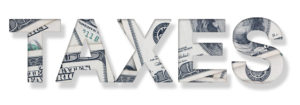 The novel coronavirus, also known as COVID-19, has kept millions of people across the country in their homes, caused thousands to be laid off, and affected virtually every aspect of our lives. Each day, the government announces new endeavors to aid those affected by the virus. This article reviews some of the recent tax relief enacted by the federal and Illinois government.
The novel coronavirus, also known as COVID-19, has kept millions of people across the country in their homes, caused thousands to be laid off, and affected virtually every aspect of our lives. Each day, the government announces new endeavors to aid those affected by the virus. This article reviews some of the recent tax relief enacted by the federal and Illinois government.
Extension of Deadline for Federal Income Tax Payments. On March 18, 2020, the IRS announced in Notice 2020-17 (later amended by Notice 2020-18) that the deadline to pay 2019 federal income tax is extended from April 15, 2020 to July 15, 2020, and no interest or penalties will accrue during the extension. The relief covers individuals, corporations, and unincorporated entities, including self-employed individuals, trusts, and estates. Further, the relief covers estimated tax payments for the year 2020 that are due on April 15, 2020. The extension is automatic and no forms need to be filed. This relief benefits any taxpayer whose 2019 federal income tax return reflects taxes owed to the IRS, helping defer payment, especially for those who have been financially impacted by COVID-19. However, it does not extend the deadline to pay or deposit any other type of federal tax (e.g., payroll tax deposits or estate taxes) or file an information return.
No Payment Extension for Past Due Taxes. It should be noted that the payment relief does not apply to income taxes for years 2018 or earlier. Taxpayers currently on installment agreements for past due taxes that have had their ability to pay affected by the coronavirus should contact their tax professional to see if they qualify for other types of collection relief.
Extension of Deadline to File Federal Income Tax Returns. On March 20, 2020, the IRS announced in Notice 2020-18 that the deadline to file 2019 federal income tax returns has also been extended from April 15 to July 15, 2020. The extension applies to individuals, trusts, estates, partnerships, associations, corporations, and other companies whose 2019 federal income tax returns would otherwise be due on April 15, 2020. This extension is also automatic and no forms need to be filed. This relief will benefit those who have been discouraged from visiting their tax return preparers during the coronavirus outbreak, as well as those who have become ill or forced to quarantine or “shelter in place” due to exposure or a governmental order. It will also benefit those who use Taxpayer Assistance Centers, which are temporarily closed due to COVID-19. However, any taxpayer who is due a refund on their 2019 return should file as soon as possible to avoid a delay of the refund due.
High Deductible Health Plans May Cover Coronavirus Expenses. The IRS issued Notice 2020-15 providing that a “high deductible health plan” eligible under Internal Revenue Code Section 223(c)(2)(A) may cover health care costs associated with testing and treatment of COVID-19. The notice does not provide specific examples of the types of costs that are covered, noting that the plan should be used as guidance.
Illinois Relief for Late Sales Tax Payments for Bars and Restaurants. The Illinois Department of Revenue issued FY2020-23 to provide sales tax relief to any business operating an eating or drinking establishment that incurred a total sales tax liability of less than $75,000 during calendar year 2019. These businesses will receive an automatic waiver of penalties and interest for late payments for sales tax liabilities reported on Form ST-1 due for February, March, and April 2020 reporting periods. Sales and Use Tax Returns must be timely filed during this time. However, the total tax due for the February, March, and April 2020 reporting periods is due in a series of four payments. One quarter (¼) of each month’s payment is due on May 20, June 22, July 20, and August 20, 2020. Note that the payments are calculated by dividing each month’s sales and use tax by four and adding the portion for each month, rather than calculating one-fourth of the aggregate amount due. In the event the Department assesses penalties and interest for the deferred payments, taxpayers may respond to the assessment notice explaining that the taxpayer believes it should qualify for the relief. Beginning with the May 2020 reporting period (due June 22, 2020), all Sales & Use Tax must be timely filed and paid.
No Tax Relief Yet for Illinois Income Tax. As of the preparation of this article, the Illinois government has not yet extended the deadline for Illinois taxpayers to file and pay their 2019 Illinois income tax returns, retaining the April 15, 2020 due date. However, it is likely that Illinois will follow suit with the federal government by extending the deadline for filing and payment. Until then, taxpayers may file a federal extension of time to file (Form 4868) to obtain an automatic corresponding extension of the filing deadline from the Illinois Department of Revenue. However, the extension does not extend the due date for payment of Illinois income taxes due. Taxpayers must use Form IL-505-I, Automatic Extension Payment for Individuals, to pay tax due and avoid penalties and interest.
Gensburg Calandriello & Kanter, P.C. is monitoring on a daily basis the situation and programs, and is well-equipped to assist you in managing your legal needs during this difficult period. Please contact us if we can be of assistance.
Sandra Mertens
[email protected]

